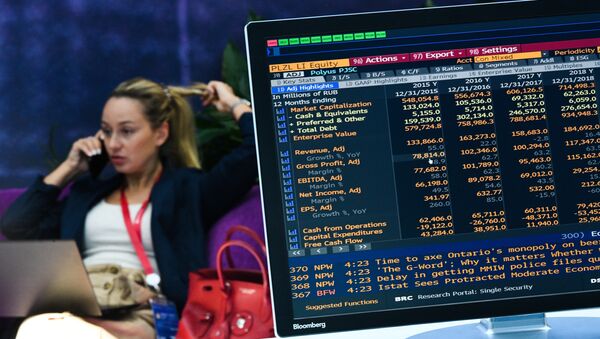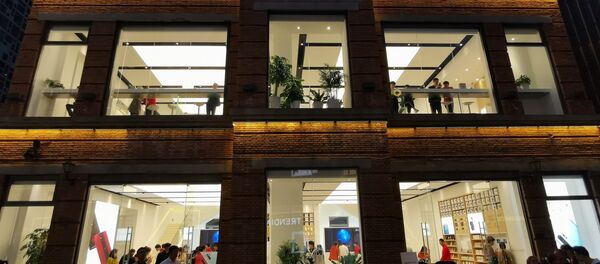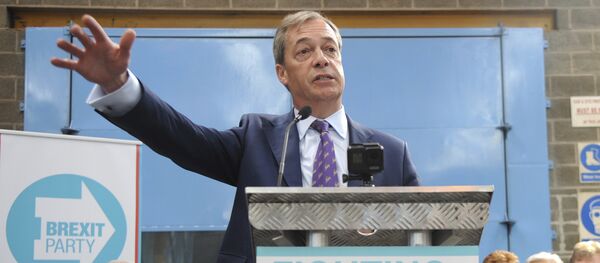He also told Sputnik about the need to introduce lifelong learning as well as the impact of social institutions in the process of adapting people to a new digital reality.
Sputnik: Your company does a lot of research when it comes to the workforce when it comes to younger generations, in particular, the millennial generations Y and Z are actively engaging in the market right now; what are their distinctive qualities, what are you noticing?
Ian Colebourne: I think that what we are seeing particularly with millennials and Gen Z as you say is that the predictability for them to stay with an employer for a long time is less confident than it would have been in previous generations. And there is a desire, I think, for those generations to get experience, a portfolio of experience with employers.
READ MORE: Russian Economist Develops Universal Indicator of Employment Potential
At a global level, something about 84 percent of the Gen Zs and millennials in our survey were saying that they are openly considering those types of employment instead of the stability, single employer and getting experience; and in Russia it’s actually higher – 95 percent of the millennials that we surveyed were saying that they were completely open to considering this type of employment arrangement, which creates quite a lot of different challenges both for employers and for the government, the regulation, the legislation that needs to support that type of change in the workforce.
Sputnik: Are we seeing right now the office culture the way it’s pictured in TV series, the Office for example, and the way it’s been seen in traditional culture dying out very quickly, or is it not so?
Ian Colebourne: I’m not sure. I wouldn’t say that the Office is a great example, but I think that the reality of employment is where we have historically looked at the employee experience; let’s take a management consulting approach to looking at what people are getting as part of their employment.
There’s a clear shift now to much more personalised, so the personal experience of employees and that’s through a range of things not only around the availability for different types of employment arrangements, but also remote working and part-time arrangements; this is another insight through the research we did in Russia around people looking to find side employment, additional types of roles that they can have using their experience to earn additional money apart from their main employment.
READ MORE: UK Faces Risks of Rising Economic Inequality, Widening Poverty – Reports
So, I think that there is a lot more of that mobility and there is a lot more willingness in that generation to consider moving from an employer based on whether they are doing good, whether they have purpose in their work. What that brings us back to in terms of that office experience, I think, is that there continues to be change, and the organisations which place purpose at their heart in terms of their strategy, in terms of what that means for employees and how they are supporting their employees, that will change, that office environment and that office experience, for sure.
Sputnik: In real life situation when you saw the reaction of people here, at the panel discussions – they are representatives of both big businesses and small enterprises – are they ready, are they prepared to accept that? Are they prepared to deal with that to any degree, or are they just stunned and surprised?
Ian Colebourne: I think there is a number of ways in terms of particularly the digital disruption that we are already seeing in business. Where are we seeing it having the business impact? So there’s robotics, that’s in manufacturing; we’ve already seen that for a number of years, but it moves on to the things like the use of drones and that type of things. Within office spaces we have robotic process automation, so very mundane routines, process-orientated roles, that’s something that machines are increasingly taking on.
At the same time, when we look at our Human Capital Trends, a programme with about 10,000 businesses around the world, a number of them are actually in Russia as well; and around 38 percent of the respondents – there’s a lot of fear about the implications of this automation – but about 38 percent, their views were that that will lead to the loss of some jobs; so, these are the typically mundane, I have to say not the most thrilling jobs for people. But what it’s also meaning is that about 40-48 percent of businesses are looking at how they are going to use AI to empower people in their jobs.
READ MORE: German Government Unveils Reworked Immigration Law, Faces Onslaught of Critics
So, there is some silver lining to this, which is that technology is removing the less exciting, the more mundane and the more routine roles, but the new jobs which are emerging are very much more the human element of this, which machines cannot do, which is the understanding, the contextualisation of that information which requires a human interpretation to look at how that can be used for the benefit of the business. It also looks at things like collaboration and teaming which are very human things; empathy, the impact of this information on people and how that will work.
Typically they would put an overlay of oversight, people making sure things are doing well; above that you have the management. That type of job structure is coming apart; it’s coming apart everywhere, it’s not just a Russian experience. And what it means is that businesses are looking at how they can retain their workforce and train them around adapting to this change.
And so, what we are seeing is a big emphasis around learning; learning is changing in the sense that this is not big set piece kind of go for three months on a training course, it’s much more tailored, much more micro using technology like video, applications that people have on their mobile devices; we ourselves as a learning organisation effectively can see what our people are working on, and we can prompt them to say "looks like you’re interested in this, we have a video course which gives you some additional background; maybe it gives you a chance to move from one part of our business to another part of our business".
So, businesses are looking at how they can continue to create this lifelong learning journey within their organisations.
Sputnik: Since you mentioned lifelong learning, you mentioned it at a corporate level, at the level of adults. Should there be an institutional approach to teach people how to learn as early as possible, like in the kindergarten? Should it be done in a family, or at school; at what stage?
Ian Colebourne: I think it can’t start early enough. I think creating a culture… I have three boys at school at the moment, and I think that one of the themes of the school is love of learning. I think that is very strong, it continues to provoke and understand that this is a path which is going to be part of your life. So, creating an appetite from a very early age…
READ MORE: Dow Jones Drops 400 Points After Trump Reveals New Tariffs for China
It starts very early and it extends further than traditional retirement; so, it’s about how people can move from that senior role – and there’s, again, a very positive dynamic which is people can think about what suits them best; they can come out of full-time employment, they can get into a contractor-type arrangement or freelancing in terms of using their experience, they don’t have to offer it and they’re not restricted one employer, they can offer it to the market.
We’re seeing platforms being developed where people with specific experience can put their CVs into those platforms and then employers are looking at how they can tap that very deep expertise which would have taken them twenty years to build up; but they can tap it very quickly through these new digital platforms.
The views expressed in this article are solely those of Ian Colebourne and do not necessarily reflect the official position of Sputnik.






